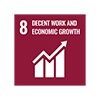Our approach
Sustainability at Glencore is overseen at the highest level, by our Board Health, Safety, Environment and Communities (HSEC) Committee.
Board oversight
The Board’s HSEC Committee sets the strategic direction for our sustainability activities and oversees the development and implementation of our health, safety, environment and social performance and human rights (HSEC&HR) strategy and programmes and monitors performance . It meets at least four times a year and receives regular updates on how our business is performing across our internally defined, sustainability-related material risk areas.
The Board is also responsible for overseeing the Group’s climate strategy and progress against Glencore’s climate commitments. Implementation of our climate strategy is led by the management team via our Climate Change Taskforce (CCT). Progress on this topic is a standing item on the Board agenda and is discussed in Board meetings at least twice yearly.
Implementing our sustainability activities
Responsibility for implementing and monitoring our sustainability activities across the Group rests with our senior management, including the Chief Executive Officer, Chief Operating Officer and heads of our corporate functions and industrial commodity departments.
Our Group policies support the delivery of our Values and Code of Conduct, which together detail the behaviour and performance expectations for all our offices and industrial assets where we have operational control.
Through our HSEC&HR standards, procedures, and guidelines, we aim to establish ethical and consistent business practices and standards for our industrial assets. Our industrial assets tailor their implementation of Group standards to reflect local cultures and challenges. These support our commitment to be a responsible and ethical operator.
Our Group HSEC&HR strategy outlines our goals, priorities and objectives for our industrial assets, and to the extent applicable, the marketing business, over the next five years. It aligns to our Purpose and our Values and considers our external stakeholder expectations. Each year, we review our strategy for material updates to consider whether it continues to fulfil the needs of our business and our stakeholders.
In 2024, we launched our 2024-2028 HSEC&HR Strategy. It incorporates the work undertaken by the business since the previous HSEC&HR Strategy was launched in 2019. It reflects the increasingly integrated nature of our business activities and the cross-functional interaction that takes place for many topics. Through internal and external key performance indicators (KPIs) and targets, it allows us to measure and demonstrate performance.
The HSEC&HR Strategy acknowledges that our industrial assets are at various stages of maturity, and that their priorities need to reflect their risk profiles. Each of our industrial commodity departments is required to develop and document its own HSEC&HR strategies and associated annual plans in line with the requirements and expectations set out in the Group HSEC&HR Strategy.
In 2023, as part of the work to develop the 2024-2028 HSEC&HR Strategy, we took a long-term view that attempted to anticipate the changes that may occur between 2024 and 2028. Going forward, our annual reviews of the HSEC&HR Strategy will consider changes to the external and internal context due to various factors such as geopolitical events and changes in trends, perceptions, and expectations.
Risk management and assurance
The management of HSEC&HR-related risks aligns with Glencore’s general approach to the identification, assessment and mitigation of risk. Our industrial assets use our Enterprise Risk Management Framework to identify and assess hazards, including those with potentially major or catastrophic consequences, and to develop plans to address and eliminate, or mitigate, the related risks. For each of the identified catastrophic hazards we have implemented a standardised approach to identifying and understanding their causes and controls, including critical control verifications.
Group Internal Audit and Assurance (GIAA) provides independent and objective assurance to help strengthen governance and controls. The Board’s Audit Committee reviews and approves the risk-based GIAA audit plan and the HSEC Committee reviews and endorses relevant components of the plan. For HSEC&HR related risks, GIAA provides assurance over a broad range of sustainability topics as well as the systematic management of our catastrophic hazards and their controls. Internal and external senior subject matter experts participate in this assurance programme. Multi-disciplinary assessments allow us to audit complex issues from a range of viewpoints for a more robust appraisal. We use these assessments to review diverse operations and activities with different risk factors, such as tailings storage facilities (TSFs), underground operations, open pit mines and metal processing plants. The Board’s HSEC Committee reviews the results of these audits, together with their key findings, and the corrective actions agreed to by the industrial assets to strengthen their management of the identified risks.
Sustainability at independently operated joint ventures
Independent management teams operate our non-controlled joint ventures (JVs). Along with our JV partners, we participate in board shareholder committees that take key strategic decisions and we use this participation to influence the independent management teams to adopt appropriate operational and governance standards that reflect those of Glencore and the other JV partners.
External standards
As we rely on the application and assurance of our own HSEC&HR management framework, we do not insist that our assets undergo third party ISO 14001 or OHSAS 18001 certification and we do not use external certification as an indicator of performance.
Some of our sites undertake third party ISO 14001 and/or OHSAS 18001 certification where there is an external requirement, or where it provides additional value to our business, customers or other stakeholders.
External commitments
We seek to uphold the International Labour Organization Declaration on Fundamental Principles and Rights at Work and the UN Universal Declaration of Human Rights.
We work in accordance with a number of specific international frameworks, including the:
- Core Conventions of the International Labour Organization
- UN Guiding Principles on Business and Human Rights (UNGPs)
- United Nations Global Compact (UNGC)
- Voluntary Principles on Security and Human Rights
- International Council on Mining & Metals (ICMM)
- Extractive Industries Transparency Initiative (EITI)
- Global Reporting Initiative (GRI)
In 2014, we signed up to the UNGC, and have sought to align our strategies and operations with the UNGPs, which cover human rights, labour, environment and anti-corruption. The UNGC also encourages participants to support the UN Sustainable Development Goals, with an emphasis on collaboration and innovation.
In the same year, we joined the ICMM and endorsed its sustainable development framework principles.
In March 2015, we became a corporate participant in the Voluntary Principles on Security and Human Rights Initiative.
We are a member of the World Economic Forum’s Partnering Against Corruption Initiative. Members collaborate on collective action and share leading practice in organisational compliance. The initiative has a commitment of zero tolerance on bribery and the requirement to implement practical and effective anti-corruption programmes. We are also an associate member of the Maritime Anti-Corruption Network.
Principles we follow
-
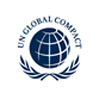 UN Global CompactVisit the website
UN Global CompactVisit the website -
 Principle 10Read more
Principle 10Read morebusinesses should work against corruption in all its forms, including extortion and bribery
-
ICMMVisit the website
-
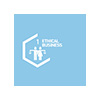
-
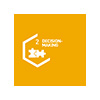
-
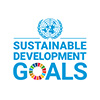 UN SD GoalsVisit the website
UN SD GoalsVisit the website -
